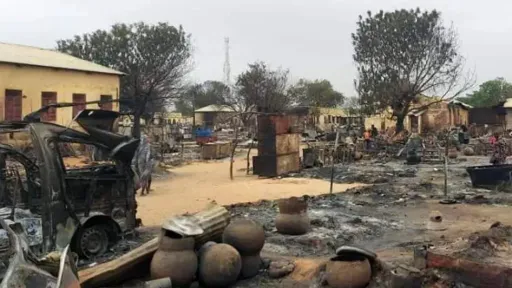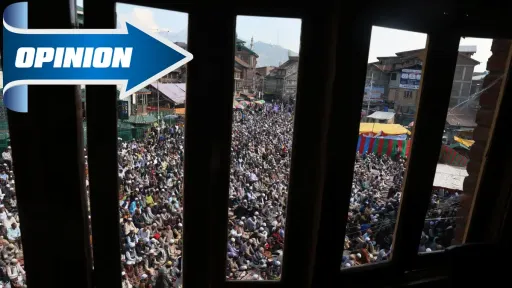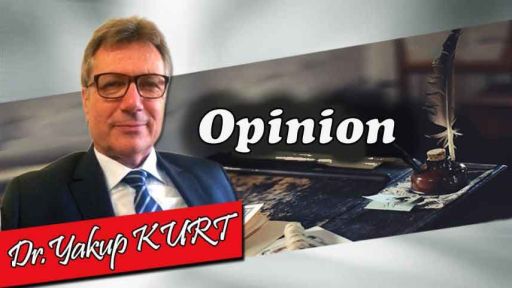A siege at the heart of Darfur: “What’s happening in El-Fasher accelerates Sudan’s collapse”

Interview by: Salih Canbaz
Interviewee: Hassan Abdallah Mohammed Ali — born in North Darfur, PhD candidate in Sociology at Sakarya University
---
Question 1: Mr. Hassan, thank you for speaking with us. As someone directly connected to El-Fasher, which is currently under siege, this conversation is invaluable. What are the main reasons behind the conflict spreading to El-Fasher since its outbreak in 2023?
The roots of Sudan’s war actually go back to the Framework Agreement signed in 2022, particularly to the workshops and the final phase of that process — the “Security and Military Reform” agenda. There were deep disagreements between the Rapid Support Forces (RSF) and the Sudanese Armed Forces (SAF) about how that reform should be implemented. The integration of the RSF into the regular army turned into a full-blown crisis of mistrust and power.
Since that crisis was never resolved, fighting broke out in Khartoum on April 15, 2023, and quickly spread across the country. At this point, it is no longer merely a military confrontation — it’s an existential crisis for Sudan itself.
Question 2: Why has El-Fasher become such a critical point in this war?
El-Fasher is not only the capital of North Darfur; it’s also a key military and logistical hub. Major humanitarian aid routes leading toward the Chad border and West Darfur pass through this city. Whoever controls El-Fasher effectively controls the entire Darfur region. For the RSF, besieging the city was a way to secure strategic dominance.
However, that dominance is being achieved at a devastating cost to civilians. As of October 2025, the city is almost completely under blockade — access to food, medicine, and clean water has become nearly impossible.
Question 3: There are numerous reports of violations during this siege. But we’d also like to hear your direct observations. What have you witnessed?
Tragically, those reports are accurate. There is strong evidence that the RSF has systematically targeted civilians. On September 18, 2025, a drone strike hit the Abu Shuk neighborhood mosque, killing 75 civilians. Then, on October 26, after the RSF took full control of the city, reports emerged that more than 2,000 unarmed civilians were summarily executed.
Satellite images confirm the scale of this atrocity. At the Saudi Arabia Maternity Hospital in El-Fasher, over 460 patients and caretakers were killed. This is a blatant violation of international humanitarian law — a war crime, and likely a crime against humanity.
Question 4: Why do you think the international community’s response has been so slow and ineffective?
This is a tragic repetition of history for Darfur. During the genocide of the 2000s, we witnessed a similar cycle of indifference. The Western formula of “humanitarian aid without effective diplomacy” has returned in 2025.
The global community does not view Sudan’s crisis as a strategic priority. Moreover, the conflicting support of regional actors — particularly the United Arab Emirates and Egypt — for different sides has paralyzed diplomatic initiatives from within. As a result, the UN Security Council has failed to pass any binding resolutions, and mediation efforts have not led to a ceasefire. The catastrophe in El-Fasher has effectively become a spectated tragedy.
Question 5: How has the siege affected civilians, especially children and families?
El-Fasher today stands on the brink of a man-made famine. The IOM, UNHCR, UNICEF, and WFP issued a joint statement on October 23, 2025, declaring the situation unsustainable.
In displacement camps — especially Zamzam and Naivasha — acute malnutrition is rapidly rising. Children are suffering from lack of food, medicine, and clean water.
The psychological toll is equally severe. Children are growing up amid relentless bombings, witnessing corpses left on the streets for days, and losing family members. UNICEF’s July 2025 report revealed widespread anxiety, nightmares, and trauma among children, while school closures are creating the risk of a “lost generation.” This is not only a physical but also a social collapse.
Question 6: As a sociology researcher, how would you define this crisis structurally?
This crisis goes far beyond individual leadership failures. It represents the collapse of Sudan’s centralized and exclusionary state structure. Darfur has long suffered from systematic political and economic marginalization.
The atrocities of 2003 and those committed by the RSF today both stem partly from these historical injustices. Unless these structural problems are addressed, even a temporary ceasefire will not bring sustainable peace.
I describe this as a “cycle of structural neglect.” The same mistakes are repeated across decades — and civilians always pay the price.
Question 7: What should be done to address this? What immediate steps should the international community take?
First, the UN Security Council must adopt a binding resolution: humanitarian corridors around El-Fasher must be established, and sanctions imposed on any parties that violate them. An immediate ceasefire is crucial to allow aid delivery.
Second, an independent international investigation mechanism should be set up. The massacres and alleged war crimes committed by the RSF must be documented and referred to the International Criminal Court.
Third, urgent psychosocial support and education programs must be developed for children and displaced families.
The RSF has subjected civilians in El-Fasher to deliberate starvation for more than 500 days — an act of brutality that demands urgent international protection and intervention.
Finally — and most importantly — the people of Darfur must be directly included in any peace process. Without them, ending this war meaningfully will be impossible.
Question 8: Lastly, what message would you like to send to the world from El-Fasher?
El-Fasher is not just a city — it is the symbol of the Darfuri people’s struggle for survival.
What is happening here is not a “local conflict,” but a moment of moral reckoning for the global conscience. If action is not taken today, tomorrow may be too late.
For me, this is not just an academic issue; every life lost here is a quiet erasure of a piece of humanity.
Photo: HRW







